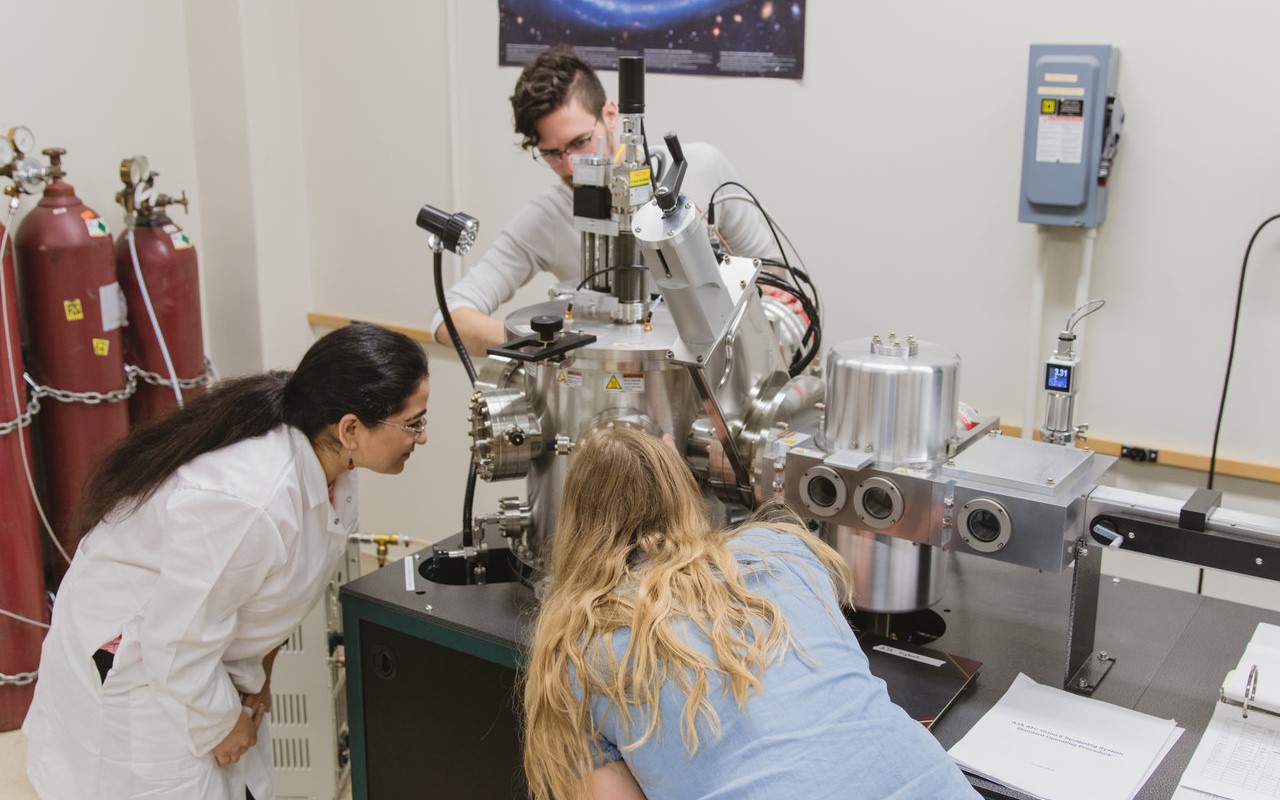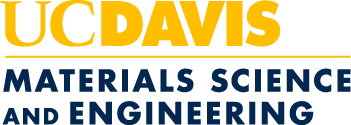Expand Your Materials Science and Engineering Knowledge
The application window for Fall 2026 is now OPEN. The general deadline for applications is January 15th, and the space-available deadline is June 1st. Please note that your application may not be reviewed if submitted after the general deadline of January 15th.
The UC Davis Department of Materials Science and Engineering offers a unique graduate experience—state-of-the-art research facilities combined with one-on-one faculty mentoring. At UC Davis, we value the unique experience that each student brings to our program. We are committed to recruiting graduate students with a variety of personal experiences, values, and worldviews that arise from differences of culture and circumstance.
As a testament to our commitment, we are ranked 33rd in the nation by U.S. News and World Report in 2022, our College of Engineering is ranked No. 1 in the percentage of women faculty among the top 50 engineering programs ranked by U.S. News and World Report (ASEE Engineering by the Numbers, 2017). We are also the No. 3 ranked U.S. college in doing the most for low-income students (The New York Times College Access Index).
With three distinct degree offerings, we have something for everyone, whether you are currently in the workforce or an undergraduate senior exploring your options. We hope you will join us here.

Master of Engineering (M.Eng.) Degree
Our Master of Engineering degree is designed to be completed in one year and is based primarily on graduate-level coursework, rather than research. With flexibility in your elective courses, this degree can be molded to fit your interests and goals, whether they include training in additional engineering, computer science or management courses. As a coursework-based degree, you do not need to write a thesis. We just require a shorter capstone report, graded on a pass/no pass basis. The M.Eng. degree is focused on real-life applications with the open for capstone project or internship in industry. This degree can be completed by those currently in the workforce or those just graduating—it’s our most flexible degree.
Master of Science (M.S.) Degree
The Master of Science degree is a two-year program with both a coursework and a research component, culminating in a thesis. If you want to gain experience in the lab before pursuing a doctoral degree, the M.S. degree may be your answer. M.S. students are often assigned more manageable projects that can be completed in a two-year period, but which still allow them to gain significant research experience. Like the doctoral degree, students in this degree track often co-author at least one publication with their major professor. This research experience can be directly applied to industry or parlayed in to further studies in a doctoral program.
Doctoral (Ph.D.) Degree
Our highest degree offered is the doctoral, or Ph.D., degree. This four-to-five-year degree combines coursework in the first two years with intense research in the remaining years, ultimately leading to students producing a publishable dissertation. Doctoral students tend to work on large, multi-step research projects and often co-author multiple publications with their major professor over the course of their studies. Our doctoral students also have the option to obtain a designated emphases (DE) in a specialized field, such as nuclear science. This is similar in concept to an undergraduate minor, but at the graduate level. After graduation, the majority of our doctoral students go into industry careers or at national labs, but a portion continue in academia with postdoctoral researcher or faculty positions.

